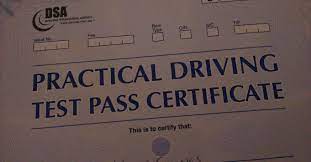
1. How can you prepare yourself mentally and physically for your driving test?
Preparing for your driving test requires both mental and physical readiness. To calm your nerves and boost confidence, get plenty of restful sleep, eat a healthy meal, and arrive early at the testing location. Avoid caffeine or other stimulants that can increase anxiety levels, and wear comfortable clothing that won’t distract you during the test. Practice deep breathing exercises and visualization techniques to help you feel more relaxed and confident behind the wheel. Consider taking a mock driving test beforehand with a friend or family member for extra practice and confidence-building purposes. Completing Smart Drive UK‘s mock tests can help you on overcoming driving test anxiety, you can feel fully prepared for the big day.
2. What are some effective relaxation techniques to calm your nerves before the test?
Relaxation techniques can help calm your nerves before your driving test. Deep breathing exercises, visualization, and progressive muscle relaxation can all be effective methods for reducing anxiety. Aromatherapy oils like lavender and exercise can also have a calming effect. It’s important to avoid caffeine and cramming last-minute information, instead focusing on reviewing key concepts. Bringing something comforting like a small toy or object can also help ease nerves. Remember to practice good posture while sitting in the car seat and to take breaks when needed throughout studying periods. Finally, don’t forget to speak positively about the experience regardless of the outcome.
3. How can positive self-talk help you overcome driving test anxiety?
Positive self-talk can help you overcome driving test anxiety by reframing negative thoughts into positive ones. Instead of thinking “I’m going to fail,” tell yourself “I am capable of passing my driving test.” This shift in mindset can boost confidence and reduce stress levels. It’s important to focus on your abilities and accomplishments, rather than comparing yourself to others who have passed their tests. Remember that mistakes happen, but what’s important is learning from them. Don’t be too hard on yourself and celebrate small victories along the way. By using positive self-talk, you can cultivate a more optimistic outlook and approach your driving test with greater confidence.
4. What role does visualization play in reducing anxiety during the driving test?
Visualization can be a powerful tool in reducing anxiety during the driving test. By imagining yourself successfully completing the test, you can build confidence and reduce negative thoughts. Visualize different scenarios, such as encountering a difficult intersection or navigating through heavy traffic, and imagine yourself handling them with ease. This technique can help prepare your mind for potential challenges, making you feel more in control during the test. Additionally, visualizing positive outcomes can trigger the release of feel-good hormones such as dopamine, which can further reduce anxiety levels. Incorporate visualization into your practice sessions to build confidence and manage pre-test jitters.
5. Can mindfulness exercises be helpful in managing pre-test jitters?
Mindfulness exercises can be a helpful tool in managing pre-test jitters. By practicing mindfulness regularly, you can learn to focus your attention on the present moment and reduce anxiety about the future. Simple techniques like deep breathing or body scanning can help you relax and feel more grounded. Mindfulness can also improve your overall well-being, making you better equipped to handle stress and pressure during the driving test. Incorporating mindfulness into your daily routine can be beneficial in the long term, not just for passing your driving test. At Smart Drive UK, we can help you overcome driving test anxiety by developing safe driving habits for life. Book a lesson with us today to start your journey towards confident driving.
6. How can a mock driving test with an instructor alleviate anxiety and boost confidence?
Taking a mock driving test with an instructor can help alleviate anxiety and boost confidence. It provides an opportunity to practice and become familiar with the test format in a safe and controlled environment. The instructor can offer constructive feedback and identify areas that need improvement, allowing the student to focus on these areas before the actual test. Additionally, the experience of taking a mock test can help reduce nerves and build confidence by providing a sense of familiarity with the testing process. At Smart Drive UK, our instructors are experienced in helping students overcome driving test anxiety through personalized coaching and mock tests tailored to fit their needs. Book a lesson with us today to start building your confidence behind the wheel.
7. Is it beneficial to disclose your anxiety to your examiner, and if so, how should you approach it?
Disclosing your driving test anxiety to your examiner can be beneficial, as they may be able to provide you with additional support and reassurance during the test. However, it is important to approach this conversation in a calm and professional manner, focusing on your desire to perform your best and your willingness to work with the examiner to achieve that goal. Avoid making excuses or placing blame for any mistakes that may occur during the test. Instead, maintain a positive attitude and show that you are committed to overcoming your anxiety and becoming a safe and confident driver. Remember, your examiner is there to help you succeed, so don’t be afraid to ask for their support.
8. What steps can you take during the actual driving test to stay focused and composed under pressure?
During the actual driving test, it’s crucial to stay focused and composed under pressure. Firstly, take a deep breath and remind yourself that you’re capable of passing. Remember to check your mirrors and signal clearly when necessary. Stay aware of your speed and maintain a safe distance from other cars. Don’t rush, but also don’t hesitate. Follow the examiner’s instructions carefully and avoid making sudden movements or unnecessary adjustments. If you make a mistake, don’t dwell on it; instead, continue driving safely and confidently. Lastly, stay calm and collected even if the examiner appears stern or critical. By following these steps, you can increase your chances of passing the test and earning your driver’s license with confidence.
9. After the exam, what strategies can you use to cope with any negative feelings or disappointment?
After the driving test, it’s important to take care of your mental health. If you didn’t pass, don’t beat yourself up. Instead, focus on what you can learn from the experience and use it to improve next time. If you did pass, celebrate your achievement and take pride in your accomplishment. Either way, it’s normal to feel a range of emotions after the test, including disappointment or anxiety. To cope with these feelings, try talking to a supportive friend or family member, engaging in self-care activities like exercise or meditation, and reframing negative thoughts into positive ones. Remember that passing the test is just one step in your journey as a driver, and there is always room for growth and improvement.
Book a lesson with Smart Drive UK today and receive personalized coaching on overcoming driving test anxiety.
Ready to overcome your driving test anxiety? Book a lesson with Smart Drive UK today and receive personalized coaching to help you build the confidence you need to pass your exam. Our experienced instructors will guide you through every step of the process, from preparation to test day. After passing your exam, join our Pass Plus course for extra practice on challenging road conditions. Contact us now for more information on our learner driver packages tailored to fit your needs. Don’t let anxiety hold you back from achieving your goals – take control of your driving journey with Smart Drive UK.



